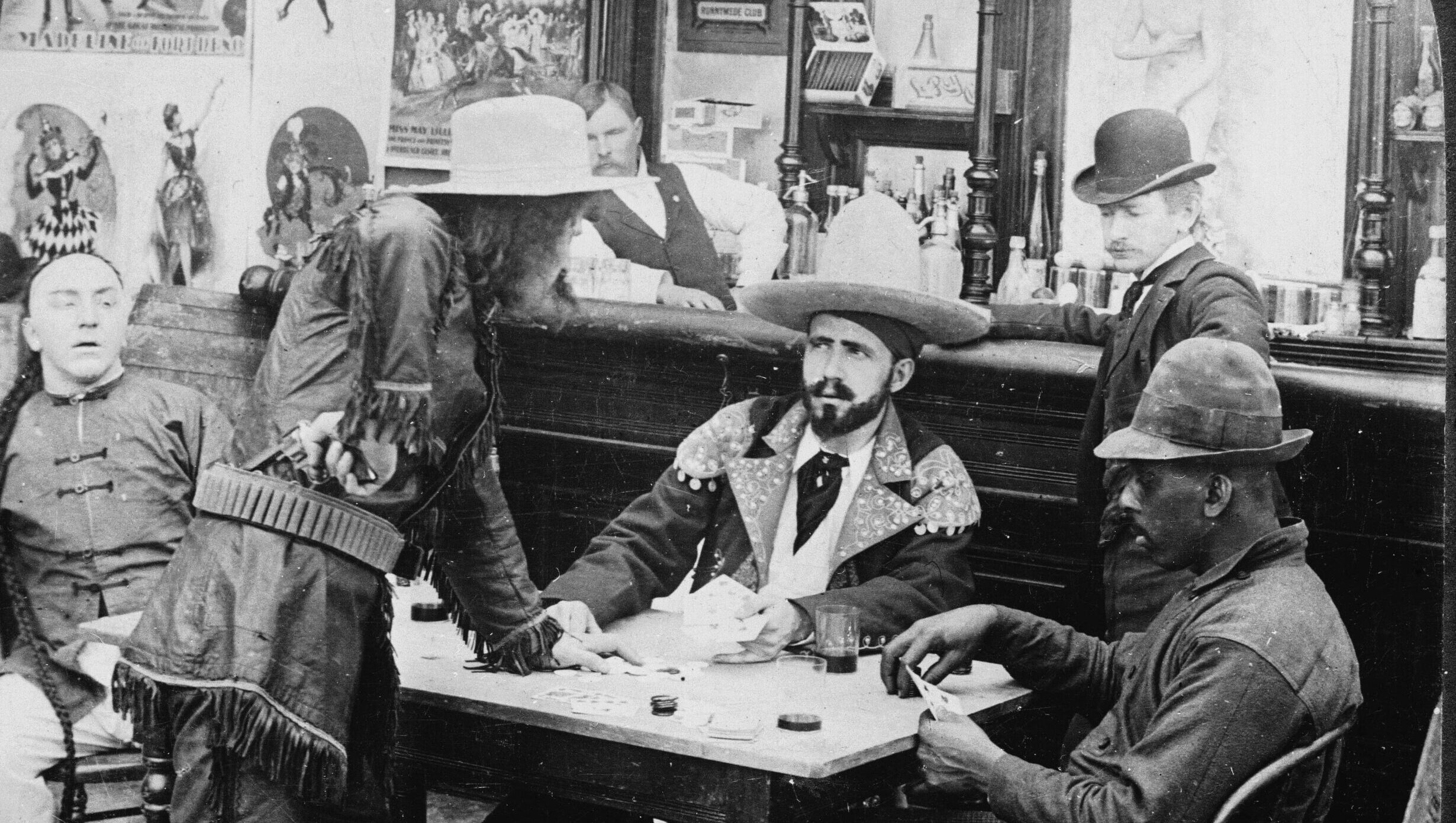Life Under Compulsion:
Ten Ways to Destroy the Humanity of Your Child
By Anthony Esolen
(Wilmington, DE: ISI Books, 2015)
Professor Anthony Esolen is an accomplished literary scholar who in recent years has become a prolific cultural critic. His most recent book serves as a companion to an earlier work, Ten Ways to Destroy the Imagination of Your Child (2010). Life Under Compulsion: Ten Ways to Destroy the Humanity of Your Child is a more ambitious book, vaster in scope. While his earlier “Ten Ways” capably explore the power of imagination (and how it can be corrupted), this latest book explores human nature itself.
A useful way to introduce Esolen’s project might be to quote Flannery O’Connor: “The novelist with Christian concerns will find in modern life distortions which are repugnant to him, and his problem will be to make these appear as distortions to an audience which is used to seeing them as natural. . . . To the hard of hearing you shout, and for the almost blind you draw large and startling figures.” Life Under Compulsion is a book about human nature published in the midst of a culture that behaves as if such a thing doesn’t exist. To borrow O’Connor’s idiom, in Life Under Compulsion Esolen shouts at the top of his voice, yet he barely exaggerates the grotesqueness of the modern condition. His book demonstrates the painfully obvious: we don’t live in a culture fit for free human persons; we furiously pursue a subhuman life, “life under compulsion.”
In its positive dimension, Life Under Compulsion is an invitation into the world of sanity, the rich perennial wisdom of Western thought about what it means to be human. In its negative capacity, this book is a withering critique of postmodern culture: the ten chapters of the book correspond to ten registers by which Esolen demonstrates contemporary culture’s disfiguring of human nature.
The premise of Life Under Compulsion is quite simple, and the title gives us a clue to the book’s main argument. In the Western Christian tradition, human beings were made to be free, and the proper exercise of this freedom is pursuing the life of moral goodness. Such a life is characterized by virtue (understood as moderation), and aligning one’s life with the natural and divinely revealed law. Such a life actually makes one happy; in this view, freedom is not mere license but the ability to cooperate with human nature to achieve a well and whole existence.
Because this is a book exploring human nature, Esolen begins with an uncontroversial but crucial insight: the opposite of freedom is what he calls, rightly, compulsion. Compulsion here means a lessening of one’s freedom, a vitiating of our ability to act freely in a way proper to a human person. Esolen points out that there are two types of compulsion: “from without” and “from within.” The former, external compulsion, comes through tyranny from government or other coercive bodies. One may not be free, for example, because of the odious oppression of a totalitarian regime.
Yet Esolen rightly emphasizes that compulsion from within is much more insidious. Compulsion from within means I am not free because I am a slave to my own deformed passions, lusts, and addictions. Those compelled from without can still be free just below the surface, in their hearts, minds, and souls. But the most dependable slave is he who is compelled from within.
Life Under Compulsion explores how modern society is perfectly engineered toward creating slaves—persons reduced to being little more than bundles of internal compulsions. Such a populace is neither happy nor free, and the sad reality is that life under “internal compulsion” begins with the very young. Thus, at the cusp of the book Esolen poses these provocative questions: “How to raise children who can sit with a good book and read? Who are moved by beauty? Who delight in innocence? . . . Who still possess youth? . . . Who have no compulsions—who don’t have to attend to the constant buzzing of a smartphone, or click on the next link . . . or buy the latest gadget, or submit to the instant urge?”
Education is a central preoccupation of Life Under Compulsion. Esolen has few kind words for schools or educators in modern America. He sees them as primary architects of life under compulsion. His metaphor for education—a fitting one—is “the machine,” and in his view this machine works largely to deform the humanity of children. As a culture we’ve come to accept as a commonplace that schools are places for socialization. Esolen’s acidic critique of education might just force his reader to revisit this assumption: Is the school really just a place to be conditioned, or is it a place to be taught? Why has socialization eclipsed learning in the discourse of education? What is the difference between socialization and learning? Should educators create dependable, manageable units of society, or form and liberate human persons through wisdom?
His assessment of the modern classroom is grim—we’ve opted for the socializing-conditioning-educational “machine.” Esolen observes that “we teach [children] how to sit still, how to obey bells, how to make insipid clichés pass for thought, how to be ‘subversive’ in trivial and uniform ways, how to think ‘outside the box’ of tradition and wisdom and into the stainless steel cage of the politically ‘correct,’ how to extend the political pinky while sipping the political tea.” The end result of such an indoctrination is what Esolen styles John Dewey’s dream society, a democratically educated people “trained to do good work in the factories, to vote responsibly, to digest their food well and move their bowels once a day, to read the newspapers, and to follow the advice of their betters . . . the new priests, the scientists and social scientists.”
Esolen points out a disturbing reality—the educational machine is like an octopus, its many arms insinuating themselves into the very foundation of society, the family. He emphasizes what we already know: education unabashedly operates as a machine for social engineering, rebuilding society from the ground up. He is not so much interpreting the mainstream educational practices as simply describing them: “children themselves are treated as tools . . . advance troops in the remaking of that human material known as their parents. . . . [They are] pawns in a sociopolitical game.” The political and cultural implications of such engineering are plain for all to see:
[Children] are liberated into a false, cramped, shallow world of slogans. They act out what the debased language expresses. Consider those chilling commercials, apparently the now preferred way of preaching to obstinate and insufficiently “progressive parents,” in which owlish children, speaking sententiously and with an idiocy far beyond their years, advise us about the warming of the earth, or health care, or racism, or what-not . . . children whose practical knowledge is as paltry as their knowledge of poetry, history, geography, mathematics, the sciences, and religion. . . . They are to bring the birch switches home to discipline the parents; the baby beats the nurse, and quite athwart goes all decorum.
Is Esolen exaggerating? He argues convincingly that mainstream education has become an institution, on a mass scale, for engineering young people. What type of people? Intellectually stifled and politically indoctrinated consumer-citizens who dependably do what they are told and take their political and social medicine. He points out the completely obvious: such a formation has nothing to do with liberating a child to be wise and free, to be a man or woman in a free society and a humane culture. They are schooled for life under compulsion.
The wholesale abandonment of wisdom, of the slow process of learning how properly to exercise human reason, results in what Esolen calls the “New and Improved Pharisee.” Stripped of its religious connotation, the modern secular Pharisee completely inverts the moral sensibilities of society. In the Judeo-Christian tradition, it is a virtue to “tolerate much, forgive all, and condone nothing” (emphasis in the original). This is common moral sense. We tolerate the imperfections and sins of others, forgive them from the heart (as Christianity and other religions wisely urge), and yet never condone evil.
One cannot say that what is wrong is right, what is evil is good, although one ought to tolerate much and forgive freely. To act thus, for individuals and society, is “liberating” and proper to humanity. But, as Esolen points out, the New Pharisee turns everything on its head: we now “condone much, tolerate little, and forgive nothing” (emphasis in the original). One can ask again, does Esolen exaggerate? We condone so much we’ve become moral alchemists at a social level, turning what is perverse and immoral into positive “values” with astonishing rapidity.
While we condone much, we have become a palpably intolerant society. Question or oppose the reigning political correctness out loud for all to hear and, to borrow a turn of phrase from Ralph Waldo Emerson, the world will whip you with its displeasure. What is original in Esolen’s critique is his observation that society no longer embraces forgiveness. We are a culture self-righteously obsessed with our new moral agenda; we are quick to identify, shame, and shout down those opposed to the new order (in the name of tolerance); and we cling to our sense of indignation with exquisite sensitivity. We make demands on others unceasingly, but no one asks for forgiveness. As Esolen points out, “thought crimes” have replaced the notion of sin, and “sensitivity training” and other modes of social engineering replace the deeply human and liberating act of forgiving our brothers and sisters.
Life Under Compulsion devotes considerable attention to human sexuality and the family. Here Esolen’s erudite and allusive method is in full force. Chapter five, entitled “Lust, not Love,” begins with a beautiful and extended meditation on various Shakespeare plays. Few figures in human history explore the complexity and depth of human love with greater insight than the Bard of Stratford. In his dramatic vision, Shakespeare again and again represents eros, romantic and sexual desire, as a powerful and good force, but one in need of proper channeling and restraint for it to lead to joy and happiness between man and woman. Only through restraint in word and deed, only through virtue and modesty, can the true glory of human sexuality find expression. To this literary exploration in Shakespeare Esolen adds a remarkable reflection on Adam and Eve from Milton’s Paradise Lost. These grand poetic visions of human love are sources of endless insight into the mystery and meaning of human sexuality.
To the wisdom of Shakespeare and Milton he contrasts the modern wasteland of popular culture: a cut line from a recent edition of Cosmopolitan (“Epic sex! Get it, Give it, Get it Again!”), and the linguistically and morally bankrupt lyrics to a song by pop performer Christina Aguilera. He observes that “here on our planet Obsessus, the virtue of chastity is not even a faint recollection. It is called abstinence and it is mocked. Manhood is mocked, although women are praised for impersonating it. The child-making thing is for everything except making children, unless you happen to want children; all is valuable according to one’s craving. . . . The land of marriage, despite all the troubles that sinful human beings bring upon themselves, is a paradise by comparison with the land of easy fornication and childlessness by choice.”
Linked to the collective addiction to lust is the disintegration of the family. Chapter 8, “Fleeing the Family,” is perhaps the richest and most profound section of Life Under Compulsion. It is an extraordinarily moving reflection on the significance of family and home. After reading it one is tempted to think we’ve lost entirely the human meaning of these terms in postmodern society. Esolen reminds us that home is a place of timelessness, where mother, father, and children live, move, and have their being together. It is a place of safety, where the world makes sense, where parents protect their children, and where boys and girls are permitted the natural season of innocence that precedes the trials of adolescence and adulthood.
Outside a truly human home is the bustle of life, of compulsion, but inside the home is a world “where moments are measured not by the movement of a mechanical hand but by the sway of a rocking chair, the ripples of easy conversation, or the mysterious rise and fall of human breath.” It isn’t a haven from exterior threats, but an oasis for human growth and flourishing. Perhaps Esolen’s compelling reflection can shock readers into seeing how pathologically disordered modern “family” and “home” life has become.
At best, the family is intact but utterly fragmented. Parents—both of them—work morning, noon, and night; children spend twelve to sixteen hours per day being shuttled from school to activities, to sports, to whatever; and when everyone comes under the same roof there is plenty of room to get away from each other in the modern McMansion, equipped with a screen for everyone to gaze upon in solitude. At worst, Esolen points out, the family doesn’t exist at all. Young women and men, lacking both the preparation and desire to be mothers and fathers, end up with a child; perhaps they live together and perhaps they don’t. Esolen’s sketch of what such a life looks like is terrifying and amplifies how gravely unjust it is for children to be denied the paradise of a stable home.
Life Under Compulsion is a powerful book and highly recommended reading for thoughtful souls in a spiritually diseased culture. In discussing the human condition, its breadth and range place it in the company of classic works of cultural criticism such as Richard Weaver’s Ideas Have Consequences (1948), Bernard Iddings Bell’s Crowd Culture (1952), and Allan Bloom’s Closing of the American Mind (1987). Esolen points out that the real problem of our era isn’t a deterioration of morality, but rather a complete loss of what it means to be human. This era is a relativistic one because it has no anthropology; humanity is whatever the mob, the politicians, or the social and behavioral scientists say it is. Life Under Compulsion forces the reader to confront culture and determine whether it serves humanity or thwarts it. With startling simplicity, wit, and elegance, Esolen poses the most human of questions: Do we want to live by compulsion, or live in freedom? ♦
Aaron Urbanczyk is dean of the School of Arts and Sciences at Aquinas College in Nashville, Tennessee.














